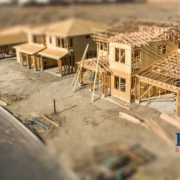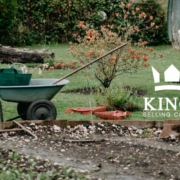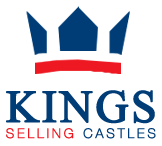Real Estate Terms You Should Know Before Buying Houses in Winnipeg
When buying a home, there is a lot of real estate terminology that you will encounter. Knowing what these terms mean is essential in understanding your real estate transaction. Most words and phrases used in the real estate industry aren’t common knowledge. So, don’t feel bad if you’re not sure what all of them mean. To help you get a better understanding of real estate jargon, we’ve gone ahead and listed some of the most common words that get used. We’ve also included a short definition of what they mean. Follow along below to learn more!
Buying Houses in Winnipeg: Common Real Estate Terminology
1. Adjustable Rate Mortgage (ARM)
An adjustable-rate mortgage (ARM) refers to a kind of mortgage with a variable interest rate. When you have an ARM, the initial interest rate does not change for a set period of time. This is known as the fixed period. After this time period is up, the interest rate on the remainder of the balance is reset at monthly or yearly intervals. This is known as the adjusted period. During the adjusted period, rate changes are made based on the benchmark rate which changes based on market conditions. You may hear ARMs be called variable rate mortgages or floating mortgages.
2. Fixed-Rate Mortgage
Fixed-rate mortgages are far less risky than adjustable-rate mortgages. This is because a fixed-rate mortgage has an interest rate that does not change over the term of the mortgage. No matter what is happening in the market, a fixed-rate mortgage will not fluctuate based on current conditions. This kind of mortgage is good for individuals who want predictability in their mortgage payments. Or, those who have a set budget that they need to stick to.
3. Appraisal
An appraisal is an assessment of the value of a property. It is most often used so that lenders can determine how much they want to loan. In Canada, appraisers need to be specially licensed. Most often, appraisers will use a comparative sales approach to determine the value of the property. This is done by looking at the recent sales in the area and finding comparable properties that have been sold.
More Terms to Know

4. Principal
The principal is the amount of money that you borrow from a lender. This doesn’t include the down payment you make on the home or the interest.
5. DTI (Debt-to-Income Ratio)
Your DTI is your debt-to-income ratio. This number is determined by lenders to assess the risk they are taking with a particular buyer. Your DTI is calculated by adding the total debt you possess, plus the monthly mortgage payment, divided by your gross income, and multiplied by 100. Generally, lenders will only loan to buyers who have a DTI of 43% or less. However, the preferred DTI is 36%. You’ll want to consider your DTI before applying for a mortgage.
6. Closing Costs
Many Canadian buyers neglect to account for closing costs when they are budgeting to buy a home. Closing costs are the costs associated with the transaction of buying a house. For instance, legal fees, REALTOR® commissions, and land transfer fees. All of these costs are due on the closing date. Be sure to talk with your about what closing costs you should budget for in your next real estate transaction.
7. Mortgage Loan Insurance
Mortgage loan insurance is required by lenders when buyers have a down payment that’s less than 20% of the purchase price. This kind of insurance is used to protect lenders against buyers in case they default on their mortgage. The CMHC offers this kind of insurance to Canadians.
8. Mortgage Pre-Approval
A mortgage pre-approval is a process where the lender pre-approves the buyer for a home loan based on their financial situation. This isn’t the same as a mortgage approval. A mortgage pre-approval simply states the maximum amount that the lender is willing to give you. However, it doesn’t guarantee that you will receive that amount.
Contact us Today About Houses in Winnipeg!
Understanding real estate jargon is an important part of buying houses in Winnipeg. This way you can grasp the full breadth of your home-buying transaction. If you have any other questions about what certain real estate terms mean, contact us today! We’d be happy to help support you through your real estate journey. Please feel free to reach out with any additional questions or concerns. Be sure to check out our social media for the latest updates and more. We look forward to working with you in the near future!














Leave a Reply
Want to join the discussion?Feel free to contribute!